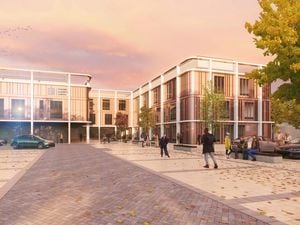‘With one bound they were free'
Although P&R’s cunning plan resulted in the big decisions being postponed until next July, the lengthy tax review debate proved far from pointless, says Deputy Peter Roffey

I said at the mid-way break in the big tax debate that it could well prove to be a game of two halves and so it turned out.
After the first half we were expecting a series of quite specific votes to be taken on our return.
What’s more, several of them – including the key one on GST – looked doomed to be voted down. Policy & Resources, and the rest of us who had worked behind the scenes on the tax strategy, were in a bit of a pickle. But if a week is a long time in politics, then a fortnight is an eternity.
In that time P&R had regrouped and they came back with a cunning plan. Shame they hadn’t had the courtesy to tell the rest of us first, but we’ll let that pass. They suspended the rules of procedure to amend their own policy letter – which they had brought in a format which forbade amendments. Funny old world.
Out went the original proscriptive propositions and in came far more bland/uncontroversial votes on general directions of travel. Any real decision making was parked until ‘phase two’ next July. Peace broke out, temperatures dropped and the States became ever so corporate and understanding. In the terminology of the comic books of the 1950s, ‘with one bound they were free’.
So P&R avoided any damaging defeats over a flagship policy but I suppose the other side of the coin is to ask if they actually achieved anything? Or were the new set of propositions so anodyne that they didn’t take us very far forward?
That’s very hard to answer. From a hard-headed technical standpoint we are very little further advanced in the decision-making process from where we were a few weeks ago. All of the difficult decisions have just been parked for eight months to avoid an embarrassing defeat for P&R. You would think that would be a rather disappointing outcome for our top committee when a few weeks ago they were telling the States that we were at ‘two minutes to midnight’.
However, there is another, more positive, way of looking at it. The lengthy debate may not have decided anything but it was very far from pointless. The mood music has changed and we are far clearer about the predilections of the Assembly when it comes to balancing the books than we were a month ago. It has both let P&R test the waters and – even more importantly – the debate itself has changed the zeitgeist somewhat.
Before the debate I thought the majority of members were in total denial over the need to raise extra revenues. Indeed they may well have been. But most deputies are reasonable people (honest) and are capable of changing their stance in the face of clearly presented evidence.
So by the end of the debate I think the vast majority of members had firmly taken on board the messages about the impact on health care costs and social care costs and pensions of our changing demographics. The narrative had changed sharply away from one of ‘do we really need to raise more revenues?’ to one of ‘how best can we do so?’
That’s still a massive issue to resolve, of course, but it is progress. The faction claiming that all that was needed was a cull of public sector employees or an offshore wind farm and the nasty question of taxation would just go away and leave us alone had discernibly dwindled during the course of debate.
Likewise, although there was no vote on social security reform, it was patently clear from debate that a large majority supported it. I am not sure they all got the fact that we couldn’t afford to do it in isolation, and that it had to be tied into tax increases elsewhere, but still it was solid progress.
In the meantime sadly, to stop Guernsey’s insurance fund running out, like sands through an hour glass, we have had to put up rates for next year under the old, unreformed and unfair system. And it’s been agreed that will continue year on year until at last it is overtaken by the big decisions we know we need to make over taxation. If even there was a spur to crack on and show the courage to do just that, it must surely be the newly approved ‘social security escalator’.
So what does all this mean when the dust has settled on the big tax debate?
GST. Still on the table but certainly not approved. Probably still facing majority opposition but has made inroads with some members now they realise it can be part of a progressive package.
Extra taxes on income. Attracted a surprisingly large amount of support. I doubt P&R will be too happy with that but they can’t ignore it. Not if the purpose of their ‘green paper’ was to listen.
Corporate taxes. Lots of appetite for this – understandably – but by bringing in specific reference to them in their amendment they may be raising expectations which could later be dashed.
Other possible taxation measures. Members definitely want all of the fringe tax options included in the next report, from motoring to property, and from paid parking to sugar. They may not support any of them but they want to consider them.
Social security. Please reform as soon as possible and use it to ensure those on the lowest incomes are not hit – in the aggregate – by any tax-raising measures.
So lots to consider and not long for detailed proposals to be drawn up, consulted extensively on, and laid before the States next July. At which point I guess we will be at one minute to midnight?





